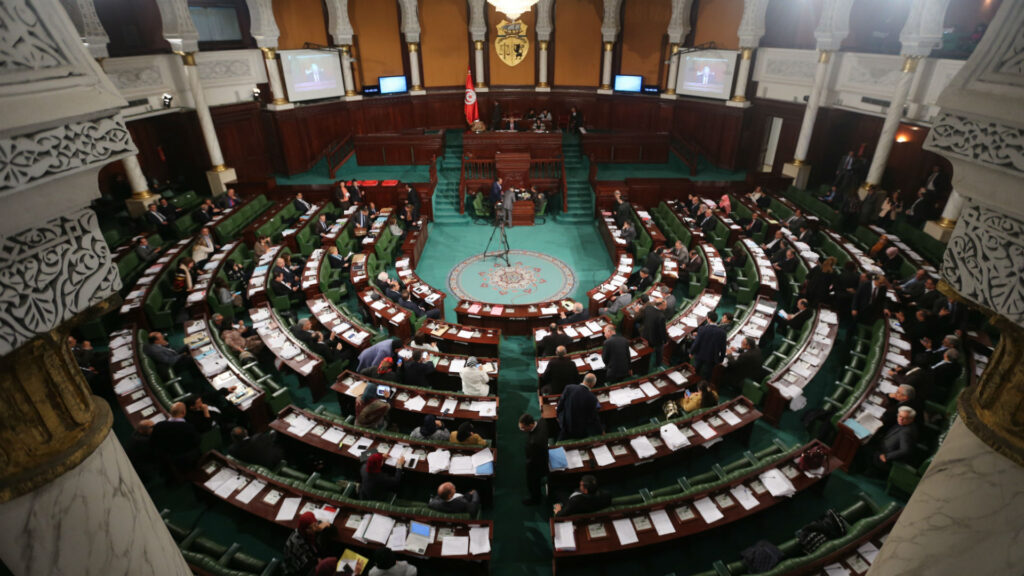Tunisia’s parliament has passed a controversial law stripping the Administrative Court of its power to adjudicate electoral disputes, just nine days before the upcoming presidential election. This decision has raised alarm among opposition groups, who fear it is a deliberate move to manipulate the electoral outcome and maintain President Kais Saied’s grip on power. The Administrative Court is viewed as the last bastion of judicial independence in Tunisia, particularly following Saied’s actions in 2022 that led to the dissolution of the Supreme Judicial Council and the dismissal of numerous judges.
Out of 161 lawmakers, 116 voted in favor of this significant amendment to the electoral law, highlighting a parliament elected in 2022 with a mere 11% voter turnout after Saied’s controversial dissolution of the previous assembly. As protests erupted outside parliament, demonstrators expressed their outrage, holding placards reading “Assassination of Democracy” and chanting slogans against the president. Political activist Chaima Issa criticized the situation, stating, “We are witnessing the capture of the state days before the vote,” as calls for nationwide protests grew louder.
The Administrative Court recently ordered the electoral commission to reinstate disqualified presidential candidates, casting doubt on the legitimacy of the Oct. 6 election. However, the commission has ignored this ruling, allowing only two candidates to oppose Saied. Critics assert that Saied is utilizing the electoral commission and the judiciary to suppress competition and intimidate potential rivals. Since his election in 2019, Saied has tightened his control over Tunisia, transitioning to ruling by decree in 2021. In recent weeks, several presidential candidates have been disqualified, with some, like Ayachi Zammel, sentenced to prison on various charges, while others, such as Abir Moussi, face incarceration on charges undermining public security.
This latest development has intensified fears of a deepening political crisis in Tunisia, with many viewing the upcoming election as a critical moment for the country’s fragile democracy.



